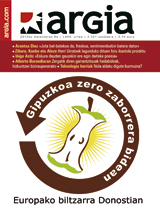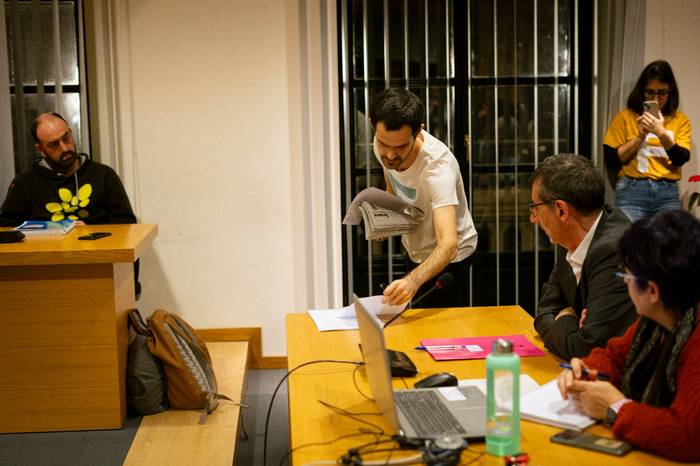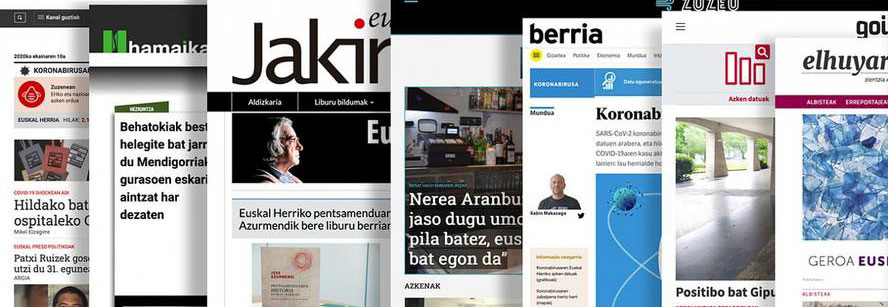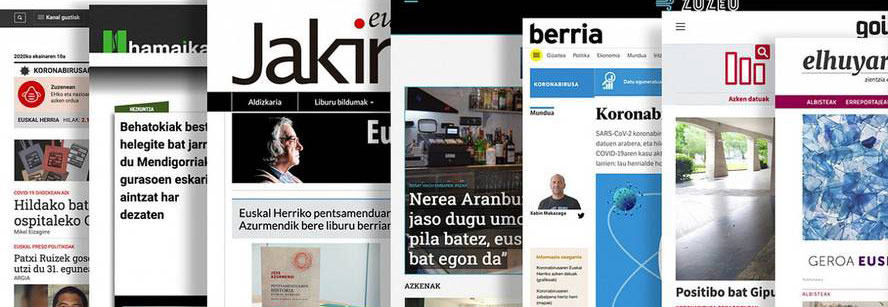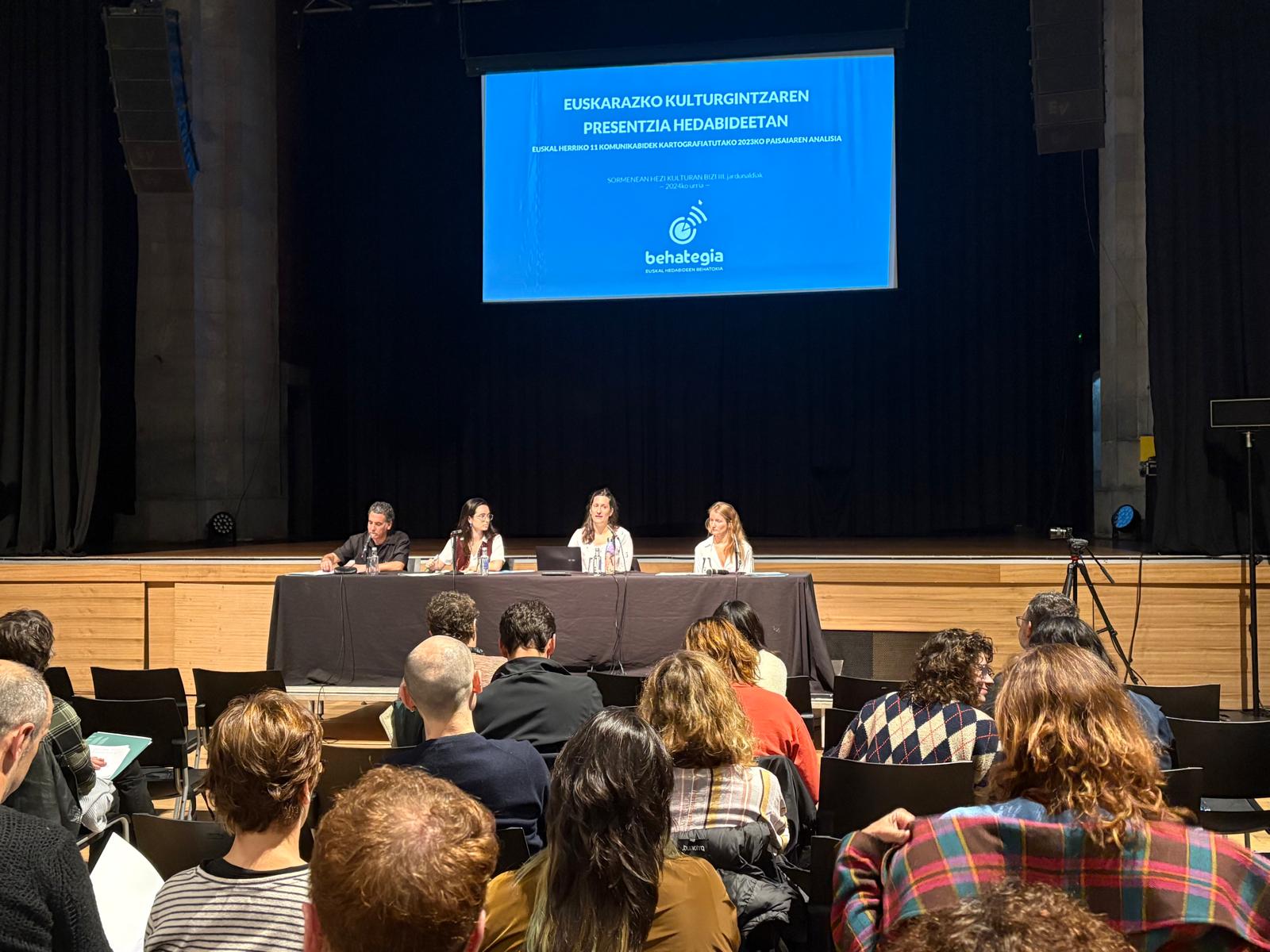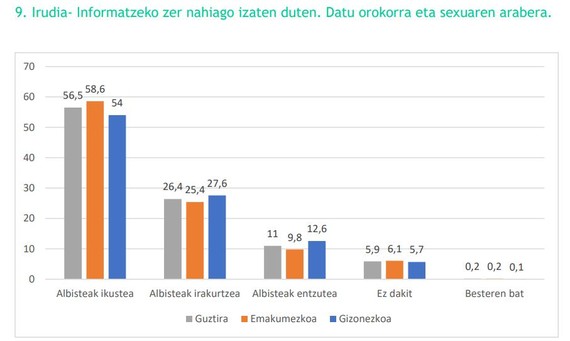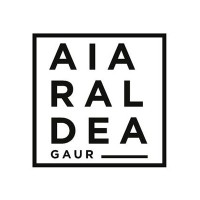"The media serves to compel communities"
- Why are the media important for the survival of languages? What does Euskal Herria have to contribute in this area? Barandiaran (at the request of the Garabide association) has written the book Hedabideak, in order to answer these questions.

The Garabide association was born for cooperation, wants to offer what Euskal Herria has to share: the vital effort of his personality. Their relationship with the communities that are trying to recover less-favoured languages. Following in this vein, he has published three books (Euskararen iraultza, Standardization of the Euskara, Hedabideak) and a documentary (Euskararen Erreketara, produced by Argia). All are available in www.garabide.org. The material is available in Spanish, French and English, as Garabide looks outward. There are also contents in Basque, “because sometimes the simplest questions are the most difficult to answer, you have to look inside and ask the question to yourself and others.”
Are we aware of the media strategy?
Some of them are, but all of us who are really in the middle. If you ask people what's the most important thing to reclaim the language, the media will never be on the front line. Teaching, administration, transmission will always tell you… All that is very important, and they are certainly the foundation, but the media are also very important, and today more. We have the Internet and social media, they're a real window into the world.
The media serves us to spread our own and to bring the exterior to our own.
It's a window of contact with the world. Maybe 40 years ago that window wasn't that big, or we could even work with it, some of them came occasionally close to that window. Today, this window is always open and a lot of light comes in. The world is constantly getting into us everywhere and we can decide the color of the window glass. I can say that I want that window to be of my color and that I want to know the world in Basque. And I want to make my world known through my colors. Why is color important? Language often nuances things, it is not the same to receive the news in English as in Basque. We are able to kill things ourselves so that others do not maticen.Los
the media also serve to compact the communities of speakers.
In the documentary Bujanda [Mikel, director of Euskalerria Irratia] asks what they want radio, and says: “To unite the Basques of the Region of Pamplona”. The Basques of the Region of Pamplona can meet in the Plaza de Pamplona [Barandiaran lives in Pamplona] or next to a radio. We know that a lot of people like us will gather on the radio, or at least speak like us. We'll get to know each other, we'll share, and so the community is compelled. G-consciousness is born.
We have recently had a relationship with Ecuador and we were told: but in the other valley they dress differently and speak another language. The jump from Leitza to Andoain is the same. For them it is very important, not what unites, but the difference. The distances are much smaller with the media.
How can the media influence standardization, language standardization?
They're very important in our country, maybe in other places it's not so obvious. The importance of Egunkaria [Euskaldunon Egunkaria] in the standardization of written language has been fundamental. The newspaper, Argia or the public media have adjusted the language. I remember the importance and the work of the language correctors and managers [in Euskaldunon Egunkaria]. New words were coming every day and we had to decide how to say them. Euskaltzaindia was not there every day, neither was the writer.
Today, the importance of announcements and the forms of radio broadcasters is impressive. They get contaminated for good and for evil. It is enough to start speaking a phrase wrong to open it up. Nothing to say on television. The importance of the media for language compaction is enormous. It's very obvious in our house.
In other places not so much.
If you go to Ecuador and tell them that they have to push the written media, they tell you that most people don't know how to read, that they don't have money to buy a newspaper every day, or to buy a newspaper. Maybe it's much more important for them to do radio or a popular media.
In the book, we didn't want to say what to do elsewhere, but what we've done, how we've done it. If it's for something, we won't tell you that you have to create a newspaper.
What model have we focused on in creating the media?
We live in the West and that is where tradition comes from, from France and Spain. Now also from the Anglo-Saxon world. What have we attached importance to? For what the rest of us have: 40 years ago the role was the strong means of communication, for we wanted to do that; then came the television; the internet has opened and we wanted to do that. What I mean is that there has been mimicry, but it's normal. We also wanted what the big neighboring languages had, a kind of draw. Once that has been the case, we can criticise it, but I think it has served us.
The network has taken on great importance.
We're giving a lot of importance to that right now, but like around the world, we can't guess where we're going. It's clear that there's a key: all the media are looking at that, rehearsing, but I don't think we can invent a lot of stuff, there's a big bubble. I have the impression that in a few years' time the majority will come from there, for example, the press, television and radio. The media here are watching, they're not fine.
The Internet can be an effective means for Basques, but perhaps not for ketxus.
The book says that it is a medium without big investments, but that it needs networks, and it is true that a digital trench is also being built. In Ecuador there is no adequate network, people are not reached. That's why the Internet is, but not. The other communities need other rhythms. It is clear to us that yes. We're there, and all of a sudden, we can't go and I don't know where. Our starting point is the languages of our environment and we want to be like them, no less. When we talk about standardisation, we mean normality. Good books, good radios, the information that comes from the outside we want in Basque, and the Internet is essential. We have to look for a place. Anyone who knows how to seize this opportunity raises their hand.
The media in Basque began to be articulated as sectors.
The work that is being done is very interesting. We're not that strong and we're not that strong. Smallness gives us flexibility and a very important vitality. The refuge to be protected when the wind blows a lot is nice and interesting, although each with its umbrella. It was time, I value it very positively. It may be the crisis that has prompted him to do so, but I believe that nice things can be done.
Euskal Herriko 100dik gora komunikabide biltzen ditu sektoreak, idatzizkoak, irratiak, telebistak eta Internet kontuan hartuta. 620 langile baino gehiago ari dira eta 27 milioi eurotik gorako aurrekontua mugitzen dute. 7 milioi euro inguru sortu eta ordaintzen dituzte zuzenean gizarte segurantza eta zergen bidez. CIESek 2007an zioen 450.000 pertsonek kontsumitzen zituztela noizbait euskarazko hedabideak, euskaldunen %57ak.
Hedabideen bitartez –Alberto Barandiaranek elkarrizketan dioen moduan– hiztun komunitateak bere errealitatearen berri zabaldu nahi du, eta era berean, munduaren berri jakin nahi du. Horretarako euskaldunak euskarazko hedabideak nahi eta behar ditu, elkar komunikatzeko eta, horren ondorioz, hiztun komunitatea trinkotzeko. Premiazkoak dira, estrategikoak. Hala aitortzen dute erakunde publiko eta alderdi politikoek, beste kontu bat da iritzia benetako sostengu bihurtzen duten.
Herritarrek herri ekimeneko euskarazko hedabideak kontsumitzen dituzte eta balorazio positiboa egiten dute, baina administrazioaren sostengu ekonomikoa ez da proportzio berekoa. 2011n 7.500.000 euroko diru-laguntza jaso zuten herri ekimeneko euskarazko hedabideek eta EITBri berari bakarrik 134,1 milioi euroko diru-laguntza eman zion Kultura Sailak. Adibide bat baino ez da. Sektoreak dituen beharretatik oso behera egon dira beti laguntzak. Krisi garaian laguntzak are gehiago murriztu dira. Diru-laguntzak emateko orduan sektore estrategikoen artean ez zerrendatzeaz gain, hedabideok kritikatzen dute erakundeek ez dutela publizitate instituzional nahikorik egiten hedabide horietan –haien kalkuluen arabera, publizitate instituzionalaren %7 baino ez doa euskarazkoetara. Azken urteotan gainbehera ekonomikoak gogor jo du eta mundu mailan ere hedabideak aldaketa garaian dira. Nazioartean komunikabide sendoek behea jo dute eta hemen bertan ere batek baino gehiagok itxi ditu ateak.
Hedabideek aspaldi eskatu diete instituzioei hausnarketa partekatua gauzatzeko gune bat, baina orain arte ez da posible izan halakorik eratzea. Oso posible da, azkenean, Jaurlaritza eta hedabideen arteko mahaia uda aurretik eratzea. Beste instituzio nagusiekin ere mahaia eratzea nahiko luke sektoreak.
Sostengu premia agerikoa da. Sektoreaz hausnartzeko 2010eko azaroan hasi ziren biltzen herri ekimeneko hedabideak. Orduz geroztik hainbat aldarri-agerraldi egin ditu sektoreak. Orain, elkartea sortzeko bidean da. Elkartearen helburu nagusiak honakoak lirateke: administrazioaren aurrean eskaerak egiteko ahots bakarraz aritzea; sektoreari buruzko ikerketa eta hausnarketa sustatzea eta hedabideen arteko elkarlana bultzatzea
Gaur abiatu da Bizi Baratzea Orrian kide egiteko kanpaina. Urtaro bakoitzean kaleratuko den aldizkari berezi honek Lurrari buruzko jakintza praktikoa eta gaurkotasuneko gaiak jorratuko ditu, formato oso berezian: poster handi bat izango du ardatz eta tolestu ahala beste... [+]
Over the past few weeks I have had these two books in my hands: The space of reflection in Basque (Euskaltzaindia, 2024) and Mariano Ferrer, reflexive journalism. Journalism and commitment (Erein, 2023) . I have read that 42.2% of Basques see ETB1 and 20.6% read the Basque... [+]
Over the past few weeks I have had these two books in my hands: The space of reflection in Basque (Euskaltzaindia, 2024) and Mariano Ferrer, reflexive journalism. Journalism and commitment (Erein, 2023) . I have read that 42.2% of Basques see ETB1 and 20.6% read the Basque... [+]









